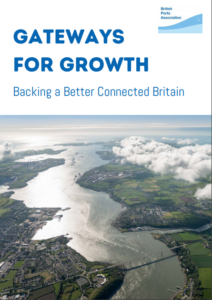The British Ports Association (BPA) has outlined the case for targeting transport spending on freight-based projects, to unlock growth in the economy and stimulate the economy post-COVID-19.
The newly launched paper “Gateways for Growth: Backing a Better Connected Britain” explains that if the funding is aimed to address congestion and bottlenecks around ports, which currently hinder the efficiency of freight journeys, the Government can unlock growth in the economy.
Moreover, the paper outlines five priorities for port connectivity and growth post-COVID-19:
- Government to recognise the £1.7bn ports invest in their own infrastructure, to the benefit of the UK economy.
- Funding allocated for the recommendations of the Port Connectivity Study, as well as a second, UK-wide report.
- Local and regional planners to recognise the importance of considering freight within planning, and the benefits derived from prioritising this.
- Local authority funding to be stepped up for roads, in line with budget increases for national agencies.
- Vital large-scale national projects to go ahead, but funding must be allocated for smaller scale, but equally as imperative projects.
Commenting, Phoebe Warneford-Thomson, Policy and Economic Analyst, at the British Ports Association noted that the ports rely on the Government’s investments in modern transport infrastructure, adding that
This can often be subject to competing demands; for example, passenger projects are frequently prioritised over the streamlining of freight movements. However, this paper outlines why investment in freight transport infrastructure is imperative.
The Analyst concluded that if the end-to-end freight journey is not able to function as efficiently as possible, the UK’s economic competitiveness will suffer; a consideration that holds even more salience as the UK faces a period of economic hardship and must seek to unlock growth in the economy.
To learn more about the paper, click herebelow































































